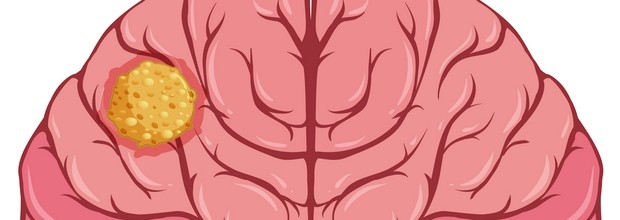Brain Cyst Treatment in Israel

Brain cysts are cavities filled with fluid, for instance blood, pus, or spinal fluid. Even a benign cyst may lead to headaches, nausea, vision disorders, and other problems. Treatment for a brain cyst in Israel is only carried out when the cyst is symptomatic or life-threatening. If the cyst is small and not dangerous, an Israeli neurosurgeon will choose to monitor the lesion.
Cyst removal in Israel is mostly carried out using minimally invasive neurosurgical methods. Tumorlike cysts may be treated with advanced radiation therapy, laser interstitial thermal therapy, or radiosurgery combined, if required, with chemotherapy or biological therapy.
Israeli neurosurgeons are able to cure the overwhelming majority of brain cyst patients. Having removed the lesion, these people return to their normal lives.
Brain Cyst Diagnosis In Israel
Neurological Exam
The patient visits a neurologist when they have symptoms potentially indicating a brain cyst. Sometimes, cysts are diagnosed accidentally, during a brain scan carried out for different reasons. Such situations also require a neurological exam.

During the appointment, the doctor asks the patient about their symptoms, family history and personal history of neurological disorders. The doctor performs special tests to assess whether the cyst is affecting brain function.
Medical Imaging Options
For brain cyst diagnosis in Israel, doctors use:
- Computed tomography;
- MRI;
- Ultrasound.
Computed tomography of the brain is primarily used in patients with brain cyst symptoms. In most cases, the results of this study help make a definite diagnosis. MRI is used in cases where the doctor requires additional information on the growth or has to create a differential diagnosis and rule out other conditions with similar symptoms.
In infants, ultrasound for the brain is a vital cyst detection method. This is a safe and non-invasive study that helps visualize the child’s brain cyst.
The Diagnostic Program For Brain Cysts In Israel
Day 1: Initial consultation and examination
The patient registers with the clinic and proceeds to their neurologist’s appointment. The doctor asks the patient about their symptoms and diseases the patient themselves or their relatives have had throughout life. This is followed by neurological tests. The neurologist uses all the information they acquired to compile a health history in Hebrew for the Israeli specialists.
Day 2: Imaging studies
The patient undergoes:
- Computed tomography or MRI of the brain (if not performed previously);
- Blood tests and urinalysis required for adequate treatment planning.
Day 3: Diagnosis and treatment plan
The patient is seen by a neurologist or a neurosurgeon. The doctor talks to the patient about the diagnosis, recommended treatment, and expected outcomes.
Brain Cyst Treatment Options In Israel
Medical Surveillance
If the condition is asymptomatic, and the cyst is an accidental find on the CT scan carried out for different reasons, Israeli neurosurgeons will prefer the medical surveillance strategy. The patient periodically undergoes computed tomography and neurological examinations to rule out the progression of the disease. If the cyst is stable, treatment is not required: surgery is only performed when the cyst becomes problematic.
Computer-Assisted Surgery
Computer-assisted surgery is also known as image-guided surgery. It implies creation of a 3D brain model to determine the exact location of the cyst. Computer-assisted surgery helps remove brain cysts through small incisions without opening up the skull. Besides, the model shows the vital brain structures so the neurosurgeon avoids damaging them during the procedure. Thanks to computer-assisted surgery, Israeli physicians are now able to successfully remove cysts previously considered inoperable.
Fenestration

This minimally invasive neurosurgical procedure implies aspiration (evacuation) of fluid from the cyst. In most cases, fenestration in Israel is performed without craniotomy. Instead, it is carried out through a small hole in the skull using an endoscopic technique. The endoscope is equipped with a video camera visualizing the operating field and the cyst for the neurosurgeon.
Some patients require fenestration with craniotomy. During surgery, a part of the skull is temporarily removed to be put back into place after the procedure. In some cases, Top Ichilov neurosurgeons perform awake craniotomy. This type of surgery implies the patient being awake most of the time and being able to answer the doctors’ questions and complete simple tasks. This surgical technique helps locate important parts of the brain and avoid damaging them during surgery.
Bypass Surgery
If after fenestration, the cyst fills up with fluid again, an Israeli neurosurgeon may offer bypass surgery. This is a procedure to implant a tube into the brain to allow cyst drainage. Bypass surgery may also be performed for hydrocephalus, an abnormal increase in intracranial pressure due to fluid buildup.
Medication Therapy
In certain cases, an Israeli physician may recommend medication therapy for a brain cyst. For example, this may pertain to brain abscesses caused by bacterial, fungal, and other infections. Tumorlike cysts may be treated with chemotherapy.
Prices For Brain Cyst Treatment In Israel And Other Countries
We present approximate prices for brain cyst treatment in US dollars.
| Procedure | Israel | Germany | USA |
|---|---|---|---|
| Initial consultation with a neurologist or neurosurgeon | 550 | 560 | 700 |
| Computed tomography of the brain | 736 | 800 | 900 |
| Open surgery to remove the cyst | 27 740 | 28 200 | 27 900 |
How To Get Diagnosed And Treated For Brain Cyst In Top Ichilov
- Call the clinic right now: +972-37621629
- Or fill in the form below. Our doctor will contact you within 2 hours.

Publication Date:














